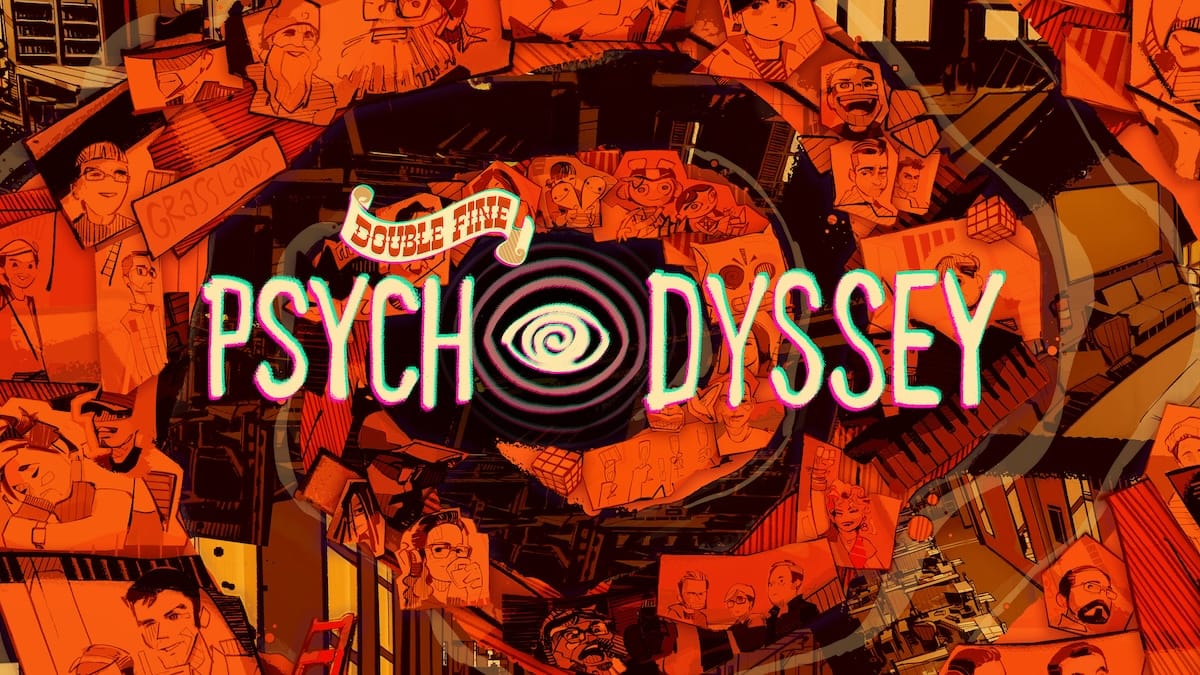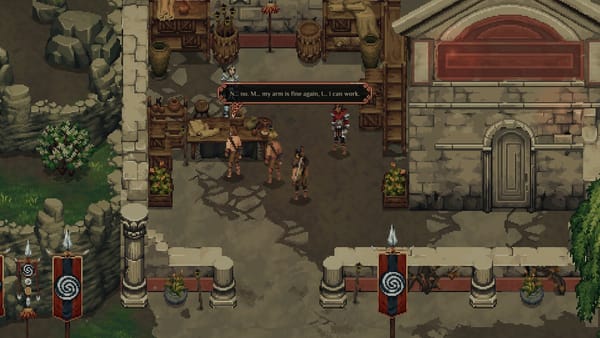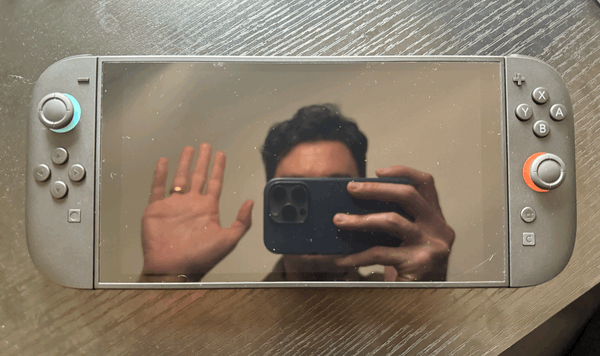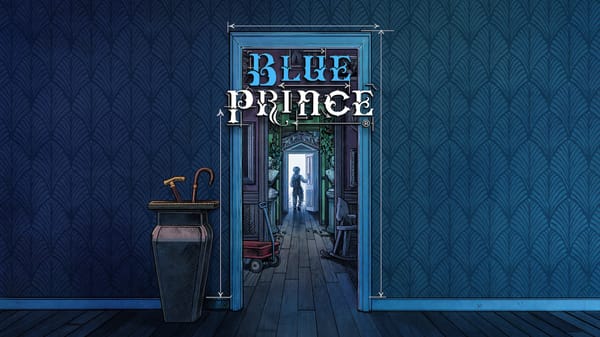Double Fine PsychOdyssey and how the sausage gets made
On game development, criticism, and demanding a better future

Games are art.
Whew. There, I said it. Thank you, yes. It is brave of me.
When it comes to art-making, my main frame of reference is writing, and to some extent music. I am not one of those people who always wanted to be a writer since they were a little kid. I did not take more than a decade of piano lessons and nearly as many voice lessons as a gag, as research for a character I’d eventually write into being. No, I wanted to be Ben Folds, then I wanted to be Sufjan Stevens. I still kind of want to be Sufjan Stevens.
But art is messy, and art-making especially so. It involves responding to what is actually happening—in my case, the inability to write lyrics, and a discovered affinity for prose—versus what what we hoped would happen. In my own life, I put away my singer-songwriter ambitions to work toward being a writer. This involved changing colleges and majors halfway through undergrad, which tacked on another semester to an already expensive education. There are consequences to shifting creative ambitions. Decisions to be made with full clarity. Compromises for the ultimate good.
Double Fine PsychOdyssey is a 32-part documentary series depicting the creation of Psychonauts 2, a six-year period marked by creative compromises. I haven’t played Psychonauts 2, but I have watched all of PsychOdyssey. It isn’t some revelation that game development is difficult. Countless stories attest to the fact. Games are incredibly expensive to make, and few titles besides the absolute tentpoles of the industry are a guaranteed bet. Even the shortest indie game is Soulsborne-level hard to create and market, and even if you do produce something that is critically successful, your entire company can still face large-scale layoffs if the game can’t meet the requisite sales.
At the same time, games journalism is being gutted as major websites staffed with talented reporters and writers are being shuttered to make way for a brave new world of dubiously-edited, AI-generated drivel, making reporting on the difficulties of game development more scarce, all to serve the interests of the monied persons and entities that see websites devoted to journalism covering the most profitable modern form of art as nothing more than ad receptacles. Fun!
Which is all to say that, no matter whether you like Psychonauts 2, or Double Fine as a studio, the very fact that they produced a 20+ hour docuseries showcasing the development of the game from its conception to its release is nothing short of a gift to an industry where developers are still routinely left out of credits for games they worked on. If, somehow, no one in your life and/or the media has told you to watch PsychOdyssey yet, let me, somehow, be the first to say: watch it.
But that isn’t what I want to write about.
What I want to write about is a stray comment I saw on X-née-Twitter that, either due to the platform’s continued deterioration or a false memory on my part, I cannot summon with any number of Boolean searches. Still, at the risk of straw manning, I want to talk about a certain reaction to the docuseries wherein it was suggested that reviewers need to be kinder, because game development is hard and the people who make games, even at a place as seemingly nice to work for as Double Fine, are under extreme creative and financial pressure.
On the one hand, sure. I can get behind this idea. For myself, I attempt to approach criticism, be it praise or pan, with a generosity of spirit. I have never written a sentence saying, “How hard would it be to add New Game+?,” because, genuinely, I do not know. Instead, I try to respond to the thing that is actually in front of me, which is the game. The art object. The thing that I am trying to make sense of, via prose, for the reader. That’s the whole project of criticism, and it always comes out of a love for the medium being addressed.
I’ve always loved reading criticism, and my earliest exposure to it was because of videogames. I have fond memories of reading Electronic Gaming Monthly, skipping directly to the reviews section each month to see what was worth pestering my parents into buying for me if it wasn’t available to rent at Blockbuster or the oddly substantive game rental section of Wegmans, our local grocery store. I loved reading album reviews on NPR in high school to get a sense of what to put on my iPod nano. I had a New Yorker subscription in college, which is probably all that needs to be said.
Through it all, I’ve come to rely on the voices of trusted critics to guide what media is worth my time. I trust Parul Sehgal, even when I disagree with her, as she illuminates aspects of a work I hadn’t considered. When Chris Plante says to jump, I say, “How high?,” even if the answer to that question is 13 Sentinels.1 I’m sure you have similar writers that you’ve come to follow. At least, I hope that for you.
I’m sure I don’t have to tell you that there is a contingent of gamers who hate critics. The recent divergent-but-still-largely-positive reviews of Starfield have summoned the worst impulses of the hobby from a group of bad actors on social media, a tale so old and boring it’s hardly worth mentioning. I wish it went without saying, but if you disagree with a writer’s opinion on a work of art, you can simply enjoy the work of art. You do not need anyone’s permission, and you certainly do not need to seek out that critic on social media to attack them personally.
I will concede one thing to this sort of person, however. In the current shape of the industry, Metacritic scores have a material consequence for game developers. Many studios give out bonuses for high aggregate scores on the site, and others allegedly demand an above-90 score by default. Much like gamers themselves, CEOs and shareholders like when number go up and don’t like when number go down. But unlike gamers themselves, CEOs and shareholders can determine the fate of people’s employment, which is to say, their ability to continue to feed, clothe, and house themselves and their families.
Which is why, when I think back on PsychOdyssey, what I think of most is the moment that Double Fine is acquired by Microsoft. There’s a running joke among employees in the documentary where they ask where Tim Schafer is. Meeting after very important meeting, he’s just not there. It turns out, according to Schafer, founder and studio head of Double Fine, he was chasing after money so they wouldn’t have to fire people. The Microsoft acquisition allowed Double Fine to finish the project unburdened by financial stress, and Psychonauts 2 has since gone on to be the studio’s best-rated and best-selling game.
Which brings me, however meanderingly, back to the point of this whole Backlog, which is that people are right to be upset about the games industry as it stands today, but pointing that discontent at the feet of critics isn’t going to better anything. If you are upset that critics, in aggregate, can tank a studio with too many low review scores, your anger would be more properly directed toward helping to achieve better contracts and working conditions for those developers, such that they aren’t perpetually contingent in an industry that continues to burn out too many talented people. If you love the medium, you should want critics and developers alike to be able to produce their individual pieces of the artistic conversation without fear, be it financial or personal. If you want games to be better, you should stand not in opposition with developers and critics who love the medium, but in solidarity with them.
Because, in the end, if we don’t focus our frustrations productively, putting our efforts toward collective solutions, we’ll continue to live in a world where a docuseries like PsychOdyssey is a gift we have to wait another decade to see the likes of again, and not the standard that we, together, might begin to demand.
Which I loved almost as much as Hijiyama loves yakisoba pan. It’s coming to PlayStation Plus Super Duper this month, so get at it, nerds. ↩




